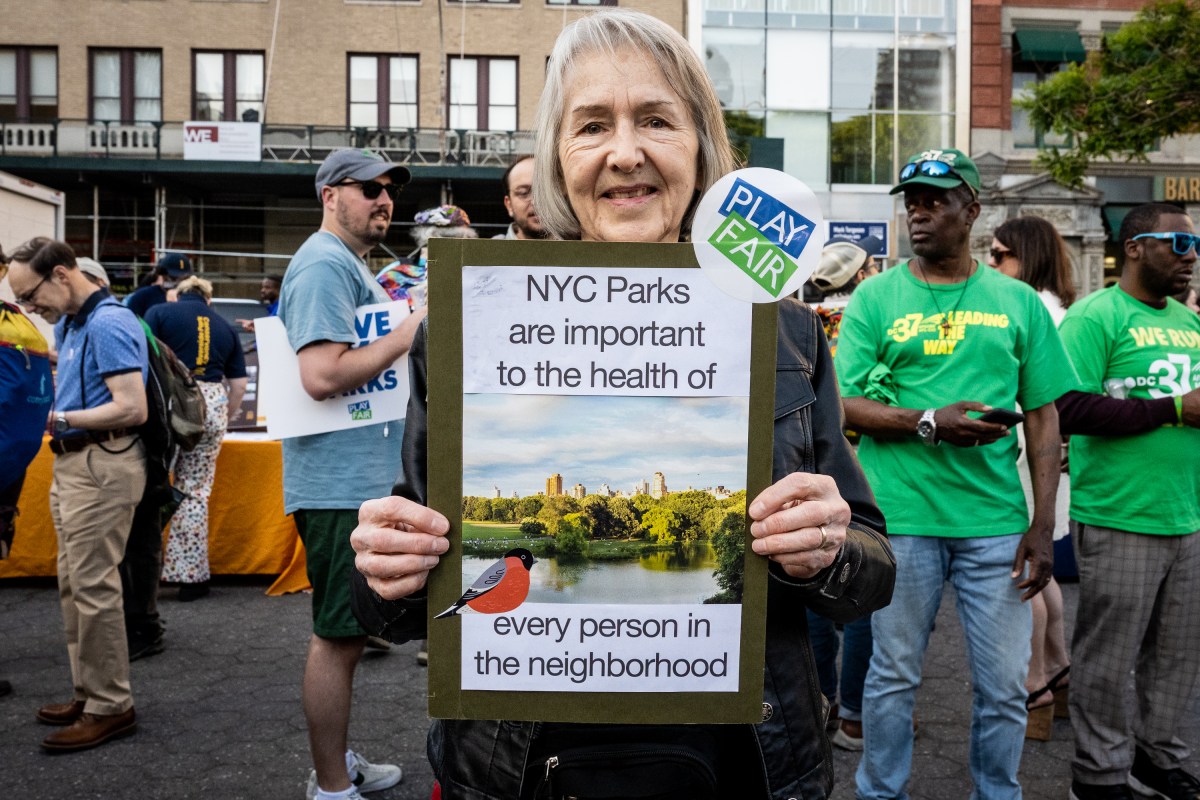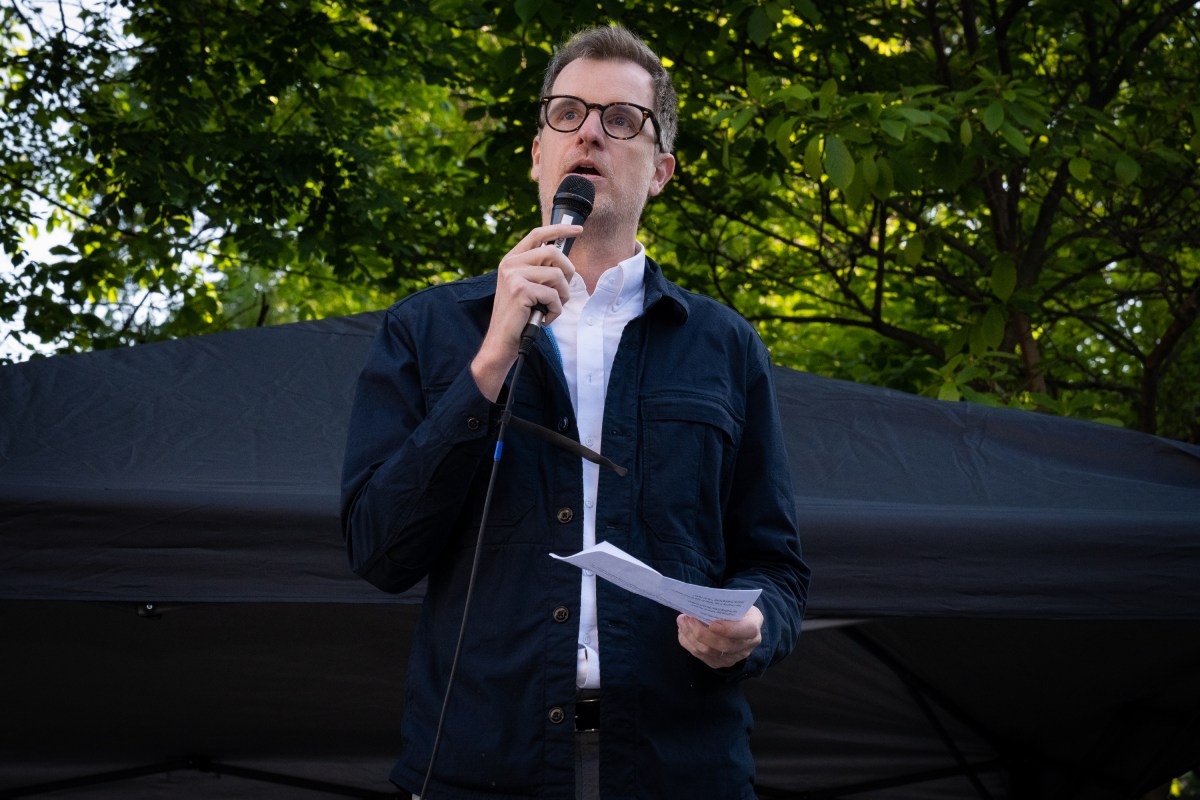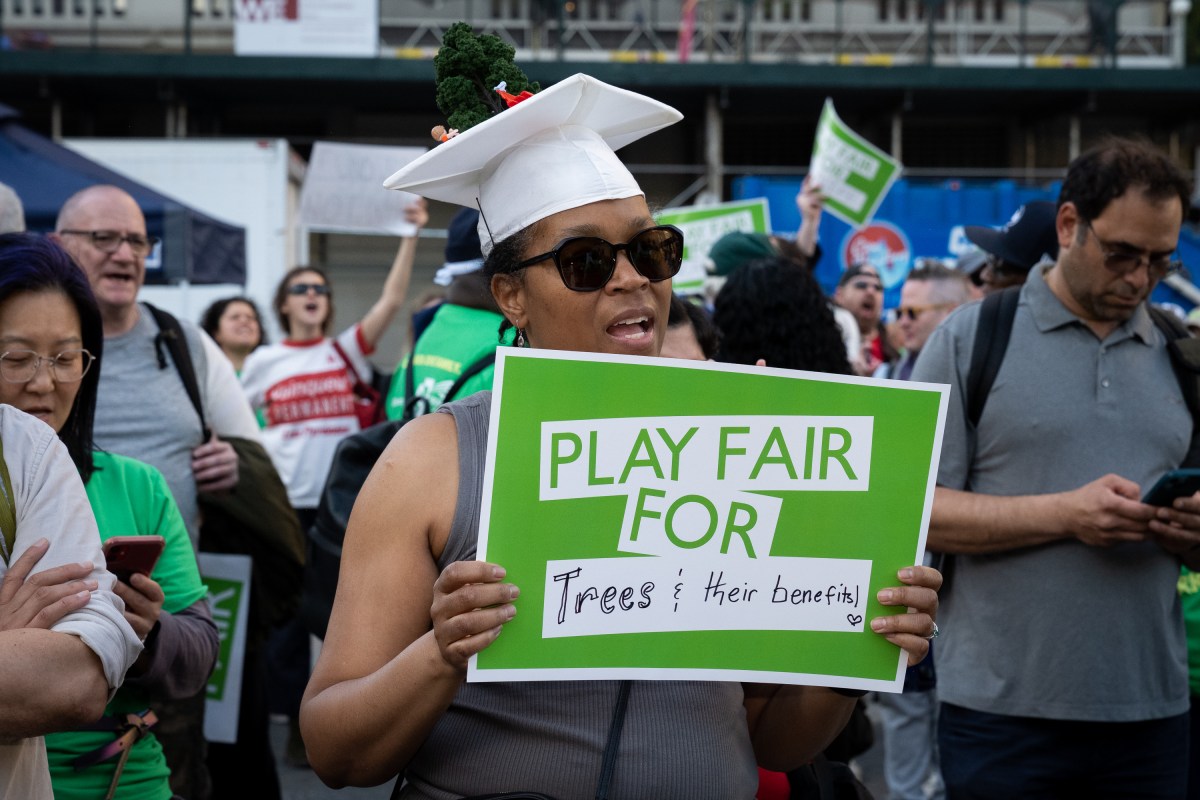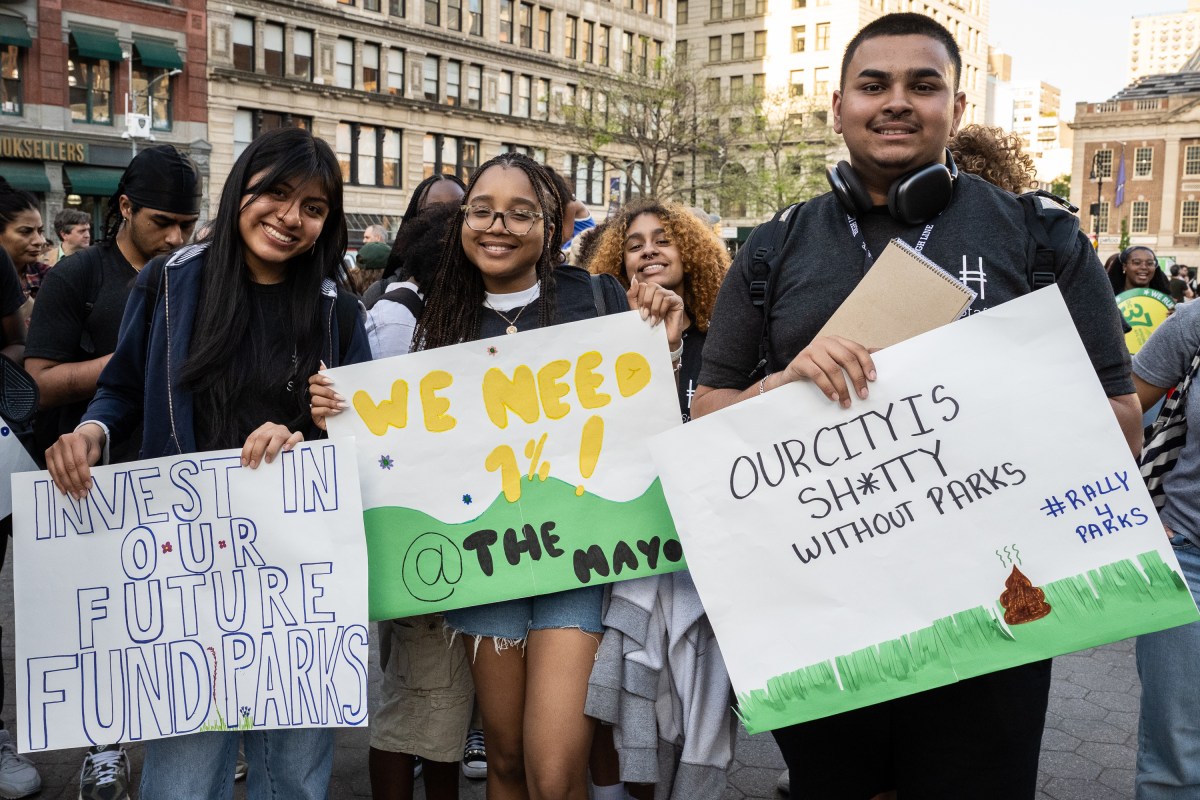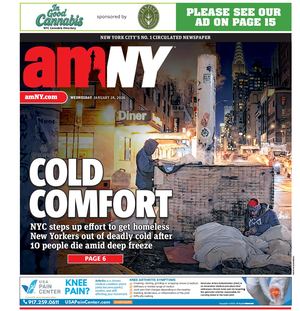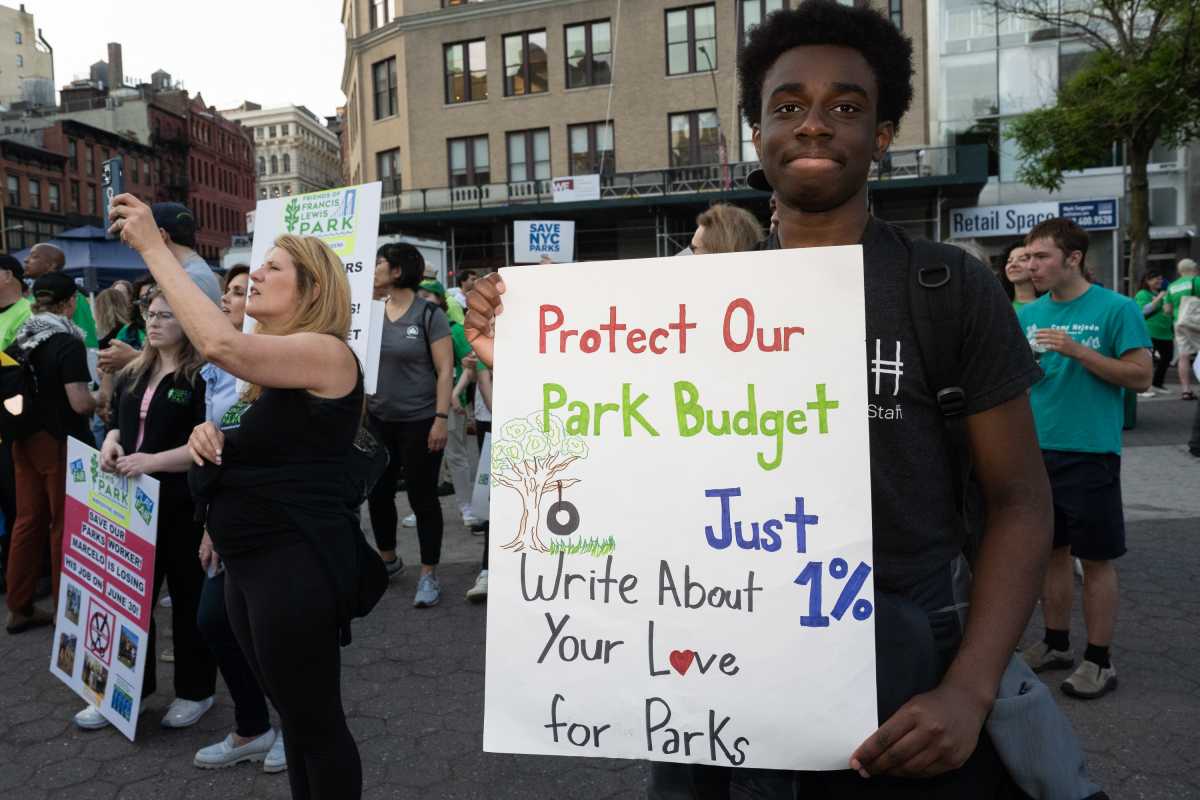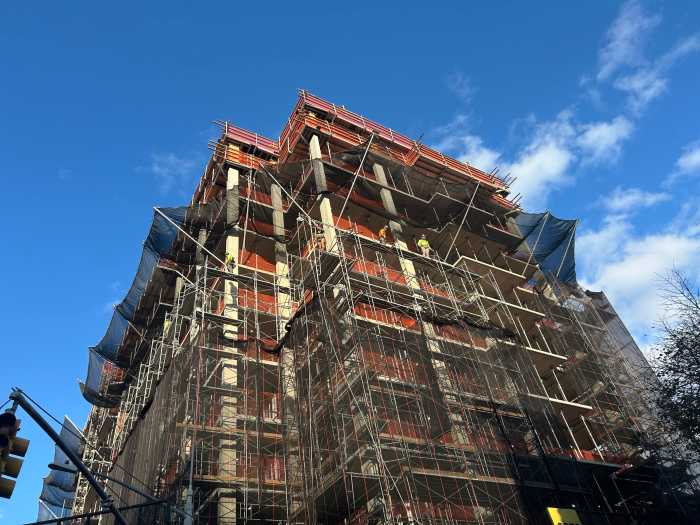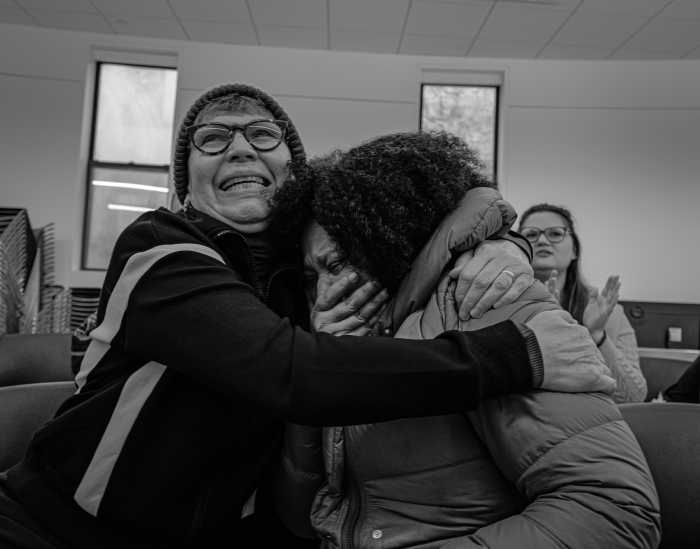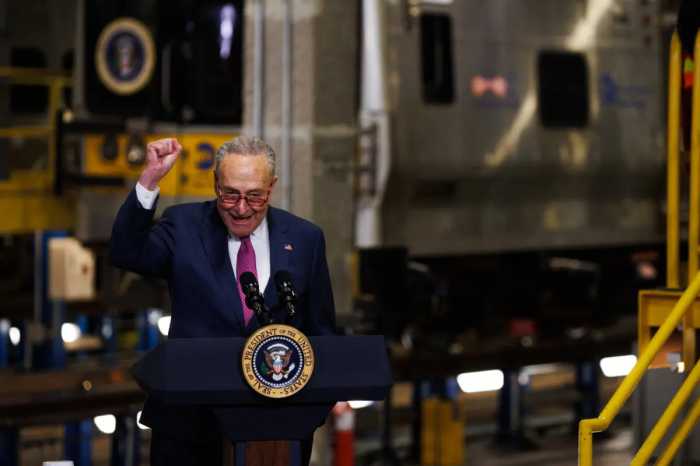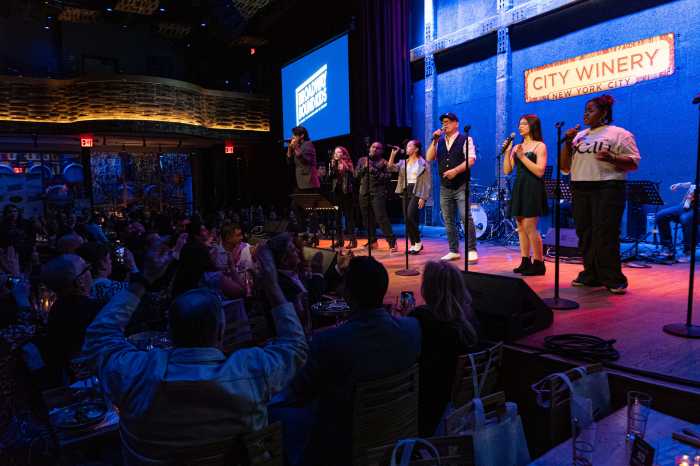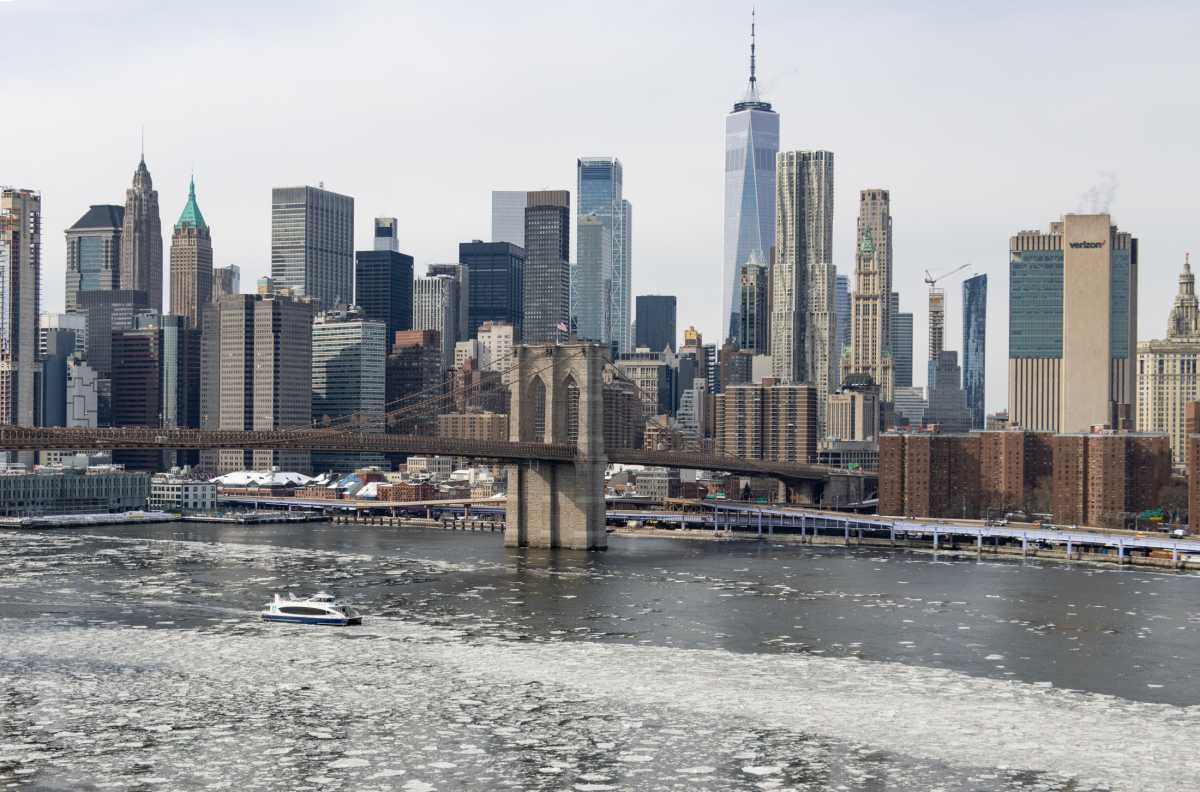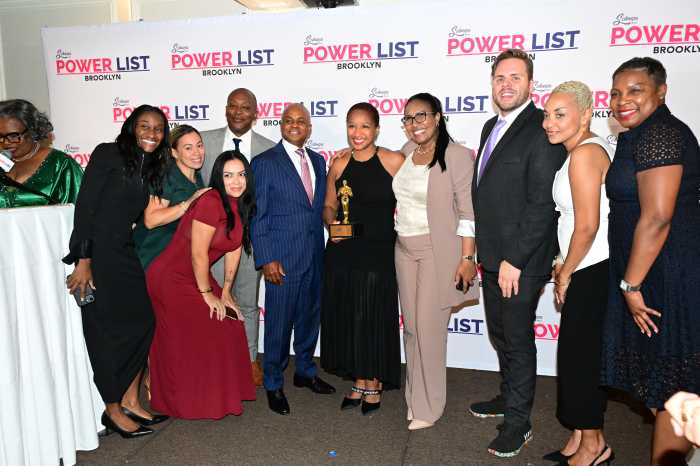Led by New Yorkers for Parks (NY4P), the Play Fair for Parks coalition, comprised of over 400 park advocacy groups, held a rally in the North Plaza of Union Square Park in Manhattan on May 7, calling on the Adams administration to reverse the proposed budget cuts for the New York City Department of Parks and Recreation.
Contrary to the Mayor’s campaign promise to allocate 1% of the city’s budget to the Parks Department, his administration has slashed the department’s already meager budget of 0.6% by $55 million for Fiscal Year 2025.
The Play Fair for Parks coalition wants the Mayor to restore the “devasting” cuts but also calls on him to uphold his campaign promise and allot 1% of the city’s budget to New Yorkers’ favorite outdoor gathering spaces.
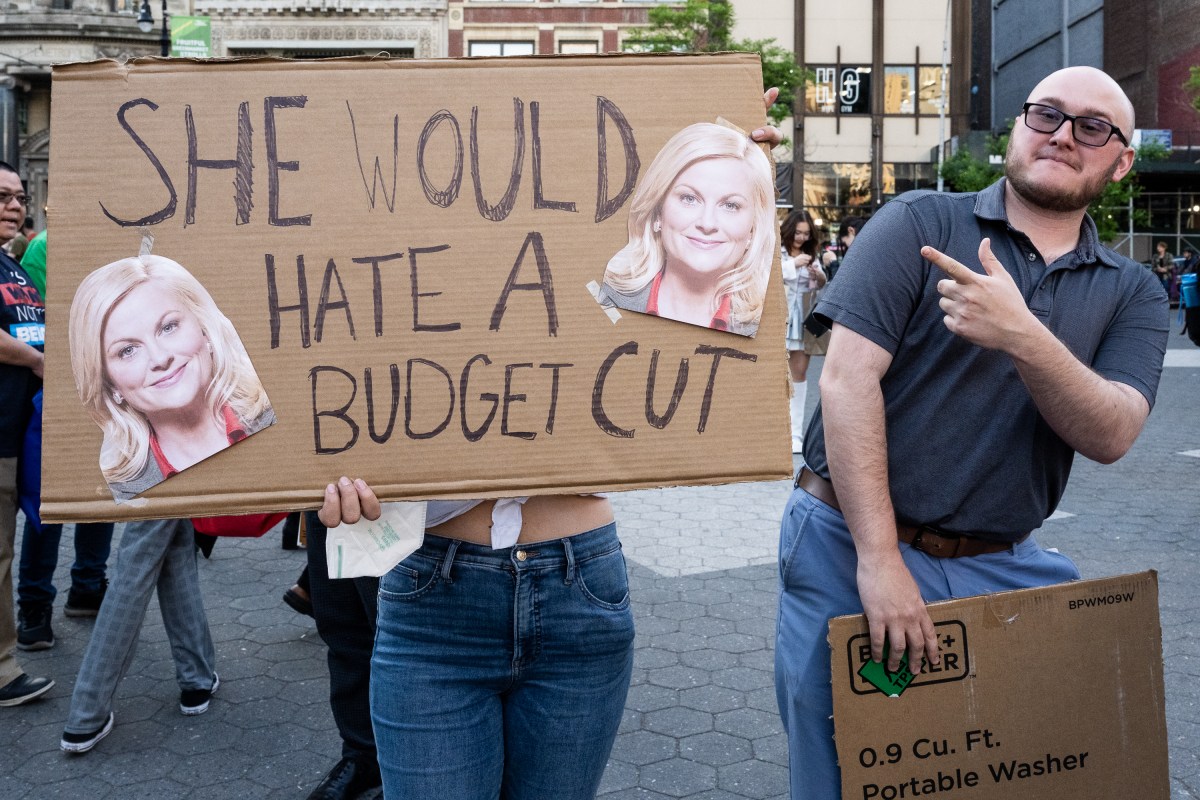
Adam Ganser, executive director of NY4P, told amNYMetro that the Parks Department’s budget has been lingering at around 0.6% for the past 40 years.
“We used to get well over 1.4 % of the city budget,” Ganser explained. “This current budget is even more sort of baffling because it’s the highest budget in the city’s history, the overall city budget, and yet the mayor has cut the Parks Department yet again. So we’re below point 6%. It’s peanuts, pennies for parks.”
The Parks Department manages 1700 City parks, over 1000 playgrounds, 161 miles of waterfront and beaches, around 50 recreation centers, 65 pools, and over 2 million trees.
The number of park workers tackling the Herculean task of caring for New York City’s green spaces is already at a 5-year low. The budget cuts will result in the loss of over 600 additional park jobs.
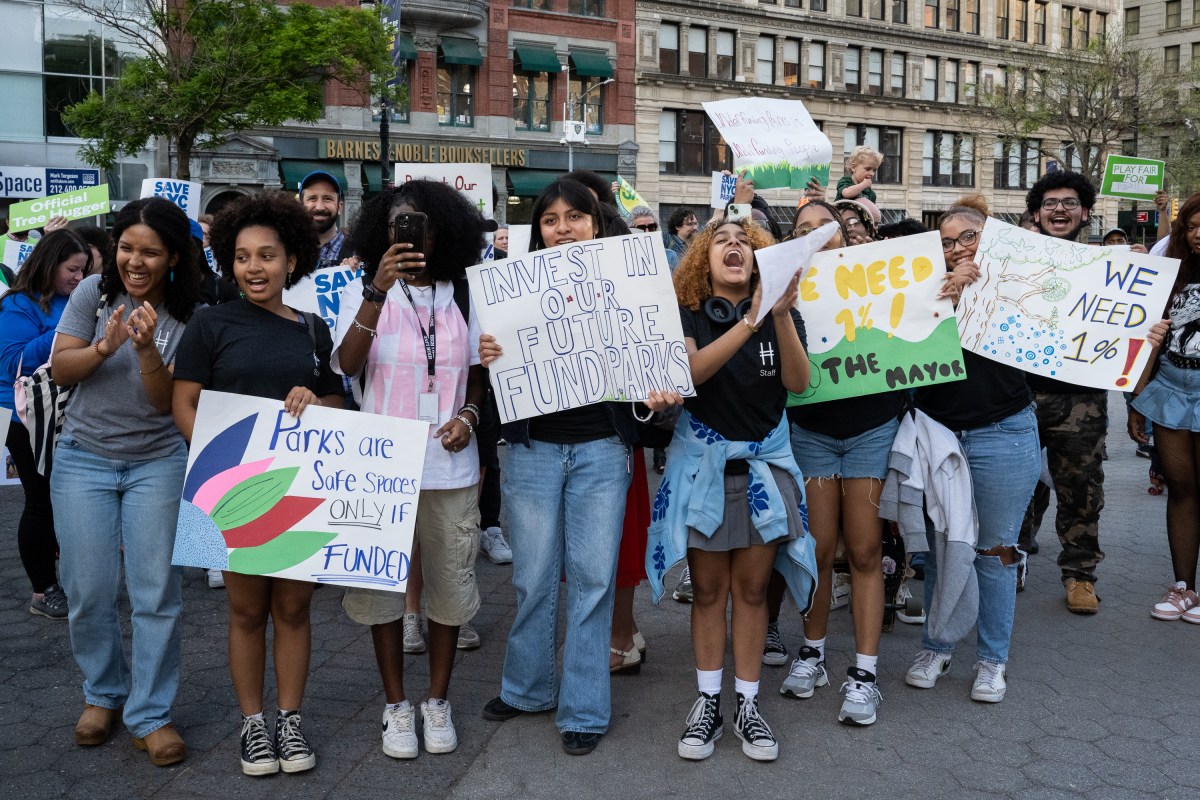
Park advocates say that the drastic cuts will lead to unsafe parks and playgrounds, dirtier bathrooms, reduction in programs like swim lessons, fewer recreation center hours, un-mowed lawns, and untrimmed trees.
Julie Tighe, president of the New York League of Conservation Voters, said the Mayor’s budget gave the impression that parks, park workers, and park maintenance and safety were expendable.
“We need these budget cuts to be reversed,” Tighe demanded. “Otherwise, this summer, we’re going to see a lot of trash and broken sprinklers and non-functioning bathrooms.”
Tighe pointed out that trees and parks were more than beautiful scenery.
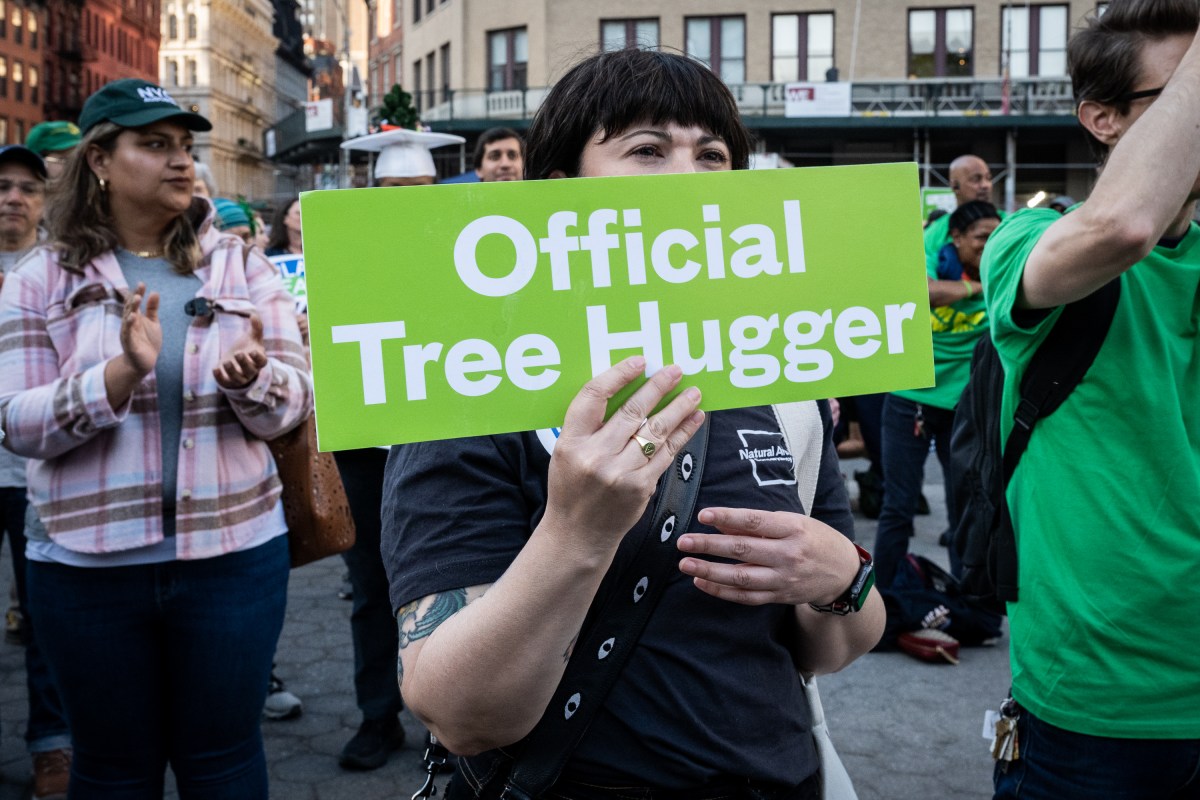
“They improve air quality, they cool our communities, they absorb stormwater, they make them crucial to mitigating the growing impacts of climate change,” Tighe said.
Dilcy Benn, president of Local 1505, representing city park workers, told amNewYork Metro it was “insane” that the Parks Department had to cut even more workers due to the budget cuts, which also pose a serious safety issue for park workers.
“We don’t have enough workers as it is,” said Benn, who pointed out that cutting the budget was a safety issue. “I have my people here on late lock-up, locking up the parks by themselves when you have people that don’t want to get out, pulling knives on them. How do we get one person trying to lock a park, and we got 20 people in there? I’ve gotten two people that have gotten hurt already trying to lock up [parks].”
Manhattan Borough President Mark Levine told amNewYork Metro that while the city’s budget outlook had improved and cuts had been avoided, this wasn’t true for the Parks Department and NYC libraries, which are closed on Sundays.
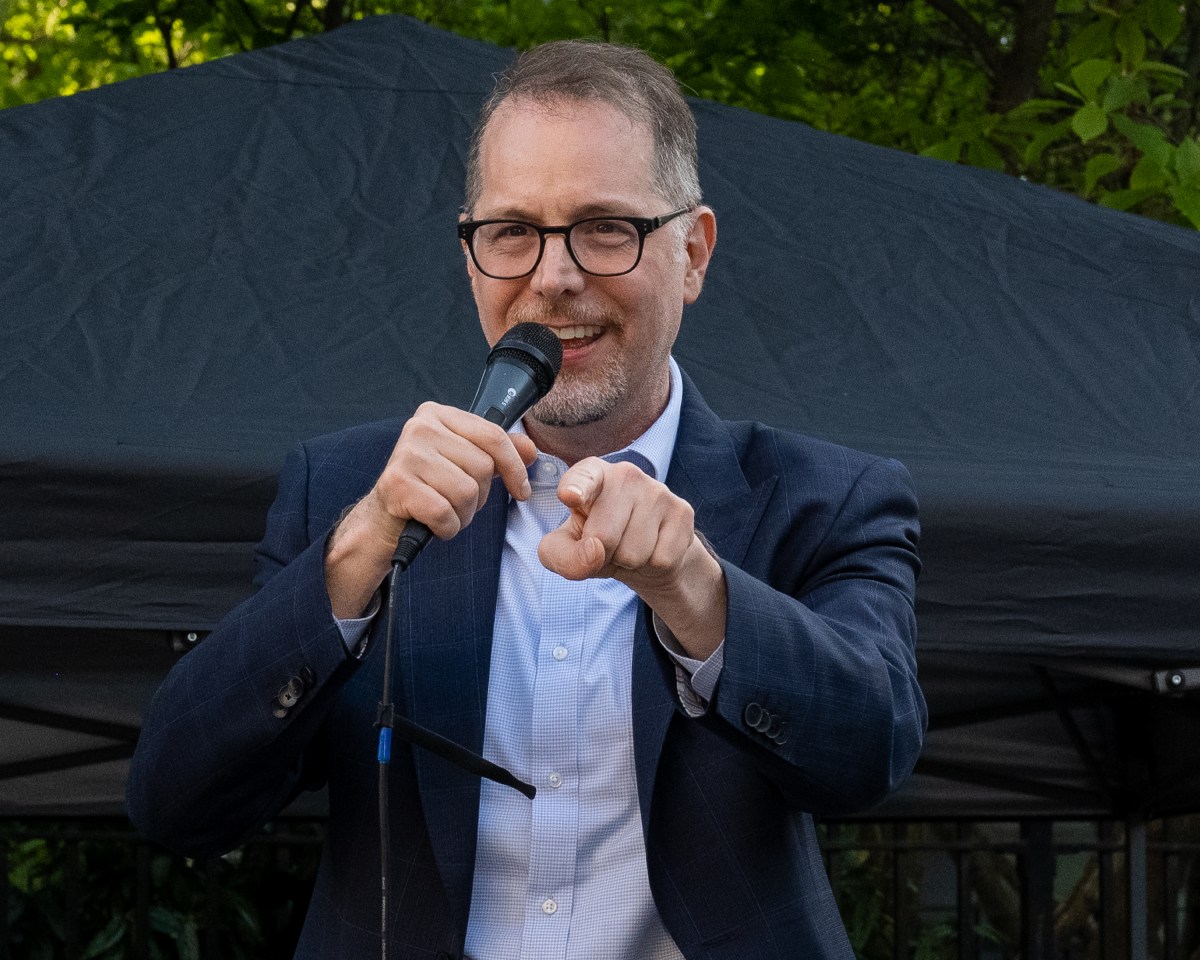
Levine said the impact of the budget cuts was “quite significant” as it would result in fewer staff maintaining the parks.
“We are down to a sliver of a percent of the budget here,” Levine said. “In the Seventies, the city used to fund parks at one and a half percent of the total budget, which is not exorbitant, but better than what we got now. We’re down to 0.6% of the budget. And what we’re asking for is only a fraction of that. This is totally doable. And I want to remind people that parks policy is also climate policy. It’s resilience, it’s public safety, it’s economic development, it’s equity, it’s health and mental health. And so this is really an investment in critical infrastructure for New York City.”
In a statement, a spokesperson for the Mayor’s office said, “Thanks to effective, responsible fiscal management over this budget cycle, including strong PEG savings programs and better-than-expected revenue, we were able to restore funding for programs in the Preliminary and Executive Budgets that will make New York City cleaner, safer, and more livable, while ensuring our young people have opportunities to learn and succeed. That includes the Parks Opportunity Program, which gives thousands of low-income New Yorkers six-month paid opportunities and training programs each year and helps us maintain our parks. The data is clear: Our parks are safer and better maintained than they were this time last year.”
They also pointed out that the Adams administration had announced “critical investments” in parks, including the Mary Cali Dalton Recreation Center on Staten Island and four skate parks across the city.
